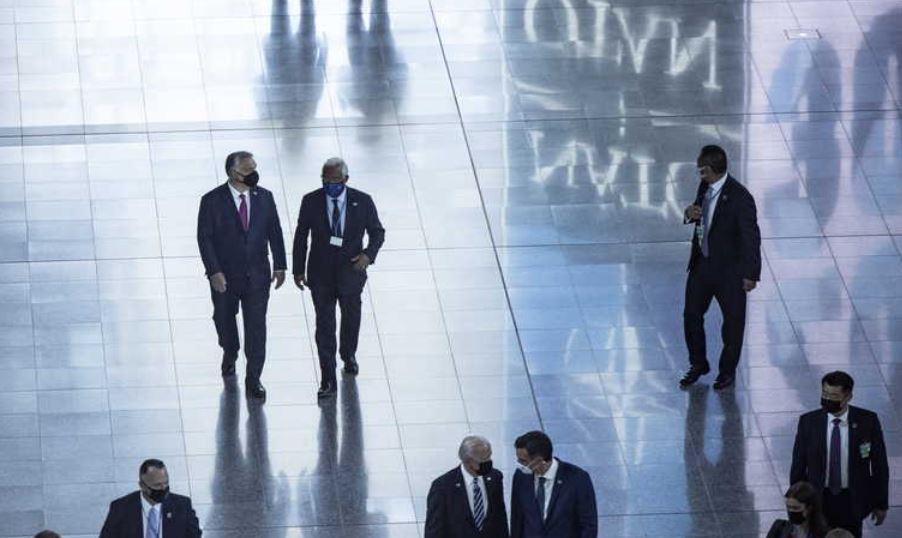The decade ahead of us will be a period of epidemics and mass migration. Member states and NATO must be prepared to respond to these challenges, Hungarian Prime Minister Viktor Orban said in Brussels, after arriving at the one-day summit of NATO members on Monday.
Whether the meeting will mark a turning point can only be decided at the end of the summit, but the allies will strive to bring about one by adopting a new strategic plan for 2030, Viktor Orban emphasized, adding that Hungary agrees with the plan’s content.
Strengthening national defence capacities is one of the key pillars of the strategy, he said, adding that Hungary was active in this respect, both in terms of fighting the pandemic or taking action against migration.
“We have things to say and can contribute to the community,” PM Orban stressed.
Responding to a question regarding the commitment of NATO members to ramp up their defence expenditures o 2 per cent of their GDP by 2024, Viktor Orban said “we’ll be fine once we have delivered on our pledge”.
“It would be better” if Hungary was already able to spend 2 per cent of its GDP on its own security each year, he added. Hungary will achieve this target by 2022-2023, Mr Orban said, pointing out that some NATO member states are doing worse in this respect.
As to the commitment that member states should spend 20 per cent of their defence expenditures on development, PM Orban emphasized that Hungary has already achieved this. This means Hungary has already met one of its commitments and will deliver the other one by 2023-2024, which will place the country in the top tier, he stressed.
“We live in one of those corners of the world where we cannot do without an army, there’s no security without an army,” he said.
Military capacity and deployable military force will always be necessary for Hungarian families and the nation. This capacity is being formed at a good pace, he said.
“We have neglected this for twenty or thirty years, but now I feel that we are putting Hungary back on the map in this regard as well” he said.
Responding to a question on the challenges posed by China, PM Orban said Hungary was opposed to any kind of cold war, adding that he spent 26 years of his life in the Cold War era between the USA and the Soviet Union.
“Believe me, it’s a bad thing, we should not do that,” PM Orban said.
US President Joe Biden is also attending the one-day NATO summit, which will focus on Russia, China, cyber-attacks and climate change.
The aim of the NATO summit, among other things, is to determine new goals and tasks for 2030 that will help prepare the organisation for future challenges. The summit will also provide an opportunity to strengthen transatlantic relations and collective security.
By: V4 Agency


